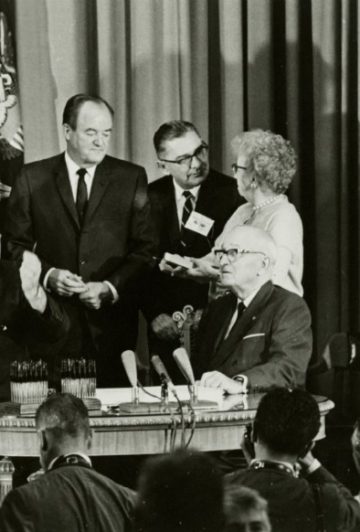
Health Care & The Welfare State
Yuval Levin
Hertog Foundation | 2011
Throughout the debate over the Patient Protection and Affordable Care Act, the word “historic” was constantly on the lips of the bill’s champions, and the notion that the bill was the latest in a long line of consistent forward steps was everywhere in the air. President Obama, when signing the measure, described it as the culmination of “almost a century of trying,” and said the law contained “reforms that generations of Americans have fought for and marched for and hungered to see.” As House Speaker Nancy Pelosi called the final vote to a close, she used the same gavel that had been used when the House voted to enact the Medicare and Medicaid programs in 1965, to emphasize the point that these were all elements of one large project.
But Pelosi’s chosen symbol stood for more than she intended. While the enactment of the two massive health-care entitlements of the Great Society period may have represented the peak of social-democratic activism in America, those two entitlements now also represent the failure of the social-democratic vision in practice. They have grown so unwieldy and expensive as to be thoroughly unsustainable, and in the process have helped inflate costs in the broader health-care sector in ways that now imperil the nation’s fiscal future. The new health-care entitlement promises to do more of the same, and thus to place even further stress on the crumbling foundations of our welfare state.
In this seminar, students will examine the theoretical roots and foundations of social welfare policy, and explore government’s role in the health sector—with a view toward answering the question: How do we balance our aspirations to prosperity and virtue and build a thriving society that makes its wealth and promise accessible to all?
Image courtesy U.S. Library of Medicine